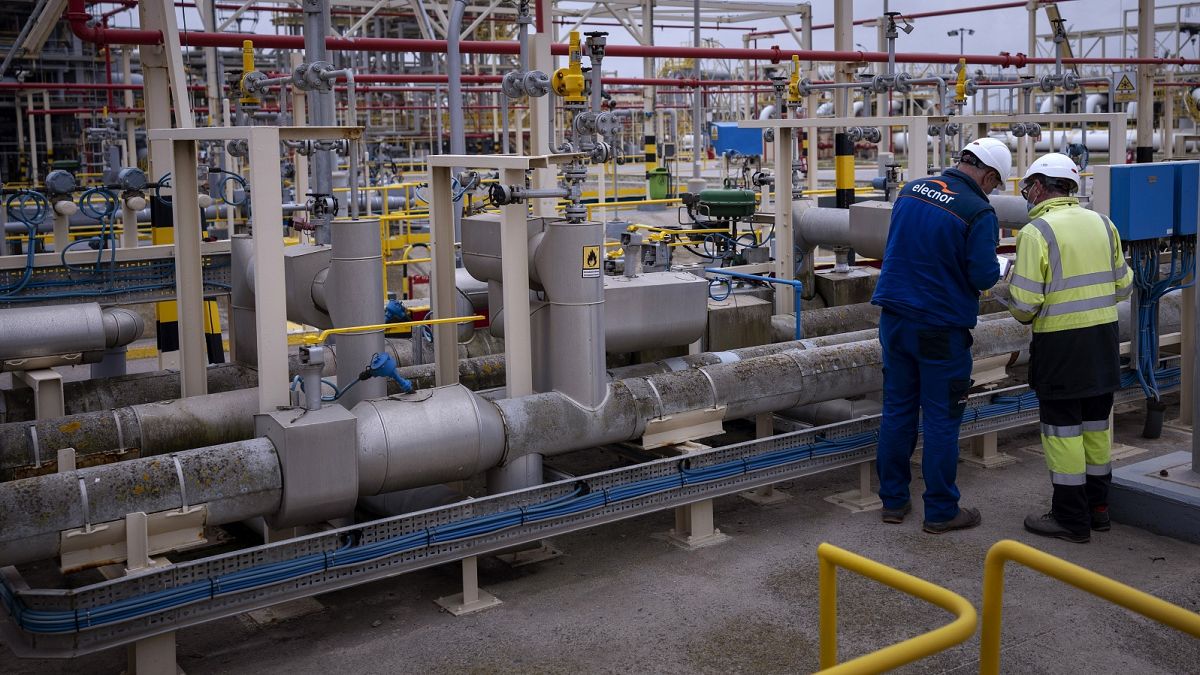Denmark, Estonia, Finland, Germany, Latvia, Luxembourg, and the Netherlands called on Monday for "targeted adjustments". Spain, however, is backing a "fundamental reform".
Seven European Union countries have warned the bloc's executive not to propose a big overhaul of the electricity market when it unveils its reform plan next month.
Over the past month, the European Commission has carried out public consultations on its planned electricity market reform that aims to make the bloc's electricity prices less correlated to the price of fossil fuels, and notably gas. It is expected to unveil its proposal in March.
The reform was deemed necessary after Russia's invasion of Ukraine and Moscow's decision to largely stop gas deliveries to the EU in retaliation for sanctions which led to a spike in prices that put European consumers and businesses under severe economic strain.
This is because the price of electricity in the EU is currently set by the most expensive power source used to generate it, usually fossil fuels and gas in particular.
In a letter published on Monday as the public consultations came to an end, Denmark, Estonia, Finland, Germany, Latvia, Luxembourg, and the Netherlands, said that "any reform going beyond targeted adjustments to the existing framework should be underpinned by an in-depth impact assessment and should not be adopted in crisis mode."
"It is crucial that attempts to address the challenge of affordable electricity prices and security of supply do not endanger the decarbonisation efforts and well-functioning of the electricity market," they wrote.
They backed the creation of more interconnections, better storage capacity, and making it easier for consumers to choose between dynamic and fixed-price contracts.
The seven countries said they were against plans to extend a temporary windfall tax on non-gas generators, writing that they "could compromise investors' confidence in the needed investments" to boost the transition to renewable sources which is estimated to cost €487 billion annually between 2021 and 2030.
They said instead that such measures "should be voluntary" and "not be imposed retroactively."
These positions are in stark contrast to other countries, including France and Spain — whose electricity generation is largely powered by nuclear and renewables respectively.
Spain, for instance, championed a "fundamental reform of the EU electricity market" in a non-paper released in late February and seen by Euronews.
They want the electricity market to go from "an energy-only to an energy and capacity market based on long-term contracts in order to ensure prices in line with average costs, security of supply and incentives for renewables, storage and demand management."
"The experience of 2022 shows that (the) current electricity market design becomes highly dysfunctional with high natural gas prices.
"In fact, (the) current EU electricity market is not fit for high price and volatile episodes in commodity markets resulting in expensive and unsustainable aid programmes to contain energy bills for consumers or the implementation of temporary mechanisms as successful as the 'Iberian Solution' in Spain," it added.
